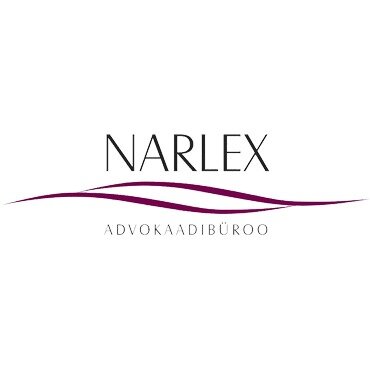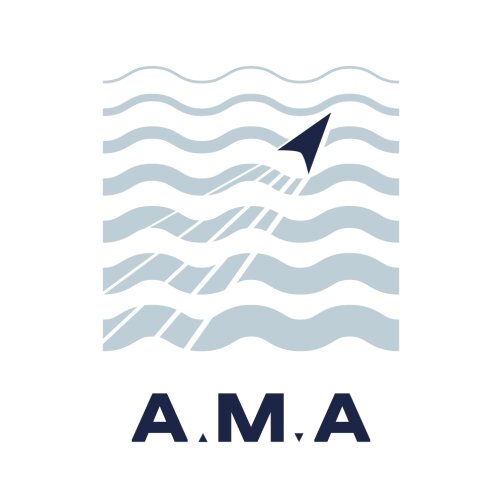Best Corporate Governance Lawyers in Estonia
Share your needs with us, get contacted by law firms.
Free. Takes 2 min.
Or refine your search by selecting a city:
List of the best lawyers in Estonia
About Corporate Governance Law in Estonia
Corporate governance in Estonia refers to the framework of rules, practices, and processes by which companies are directed and controlled. This system determines how rights and responsibilities are distributed among different participants in the corporation, such as the management board, supervisory board, shareholders, creditors, and other stakeholders. Estonian law emphasizes transparency, accountability, and alignment with international standards, especially for companies listed on the Nasdaq Tallinn Stock Exchange. For private companies, while the regulatory requirements are generally less strict, good corporate governance is still key to long-term growth and legal compliance.
Why You May Need a Lawyer
Seeking legal guidance in corporate governance can be essential for both start-ups and established companies in Estonia. Common situations where professional legal help is beneficial include:
- Establishing a company and setting up an effective governance structure
- Understanding the rights and obligations of shareholders, board members, and executives
- Navigating mergers, acquisitions, or restructuring
- Reviewing or drafting articles of association and shareholder agreements
- Ensuring regulatory compliance, especially for publicly traded companies
- Managing conflicts of interest or disputes between stakeholders
- Implementing anti-corruption and corporate ethics policies
- Meeting disclosure and reporting obligations
A lawyer can help you avoid costly mistakes, reduce risks, and ensure that your company operates lawfully and efficiently in Estonia's business environment.
Local Laws Overview
Corporate governance in Estonia is regulated primarily by the Estonian Commercial Code. This Code sets out legal requirements for different types of business entities, such as limited liability companies (OÜ), public limited companies (AS), and partnerships.
Key aspects include:
- Board structure: Public limited companies require both a supervisory and management board; private limited companies usually only require a management board.
- Duties of board members: Board members must act in the best interests of the company and are personally liable for damages caused by breaches of their duties.
- Transparency and disclosure: Companies must keep accurate records, submit annual reports, and disclose material information to relevant authorities and shareholders.
- Shareholder rights: Shareholders have rights to receive information, participate in decision making, and challenge management decisions under certain conditions.
- General meetings: Rules exist for convening and conducting meetings, which play a central role in company governance.
- Conflict of interest policies: Laws require clear management of conflicts between the interests of company officers and the company itself.
- Compliance for listed companies: Listed companies must also comply with the Corporate Governance Recommendations issued by the Estonian Financial Supervision and Resolution Authority.
Frequently Asked Questions
What is the main law regulating corporate governance in Estonia?
The Estonian Commercial Code is the principal legislation governing corporate governance for companies established in Estonia.
Who is responsible for the day-to-day management of a company?
The management board (juhatus) is responsible for the daily operations and management of the company.
Are supervisory boards mandatory for all companies?
Supervisory boards are mandatory only for public limited companies (AS), not for private limited companies (OÜ), unless specifically required by the articles of association.
What are the key duties of board members?
Board members must act in the best interests of the company, exercise due diligence, avoid conflicts of interest, and comply with legal and contractual obligations.
Can board members be held personally liable?
Yes, board members can be personally liable for damages caused by breaches of their duties or by failing to ensure the company complies with legal requirements.
How are shareholder rights protected?
Shareholder rights are protected by law, including the right to receive information, participate in shareholder meetings, and take legal action if their rights are infringed.
Do Estonian companies have to follow any corporate governance codes?
While the Estonian Corporate Governance Recommendations are mandatory for listed companies, non-listed companies are encouraged to follow them as best practice.
What are some common compliance challenges?
Common challenges include maintaining up-to-date records, timely submission of annual reports, proper management of conflicts of interest, and adhering to disclosure obligations.
What happens if a company fails to comply with governance rules?
Non-compliance can lead to fines, legal disputes, reputational damage, removal of board members, or even the dissolution of the company in serious cases.
How can a lawyer assist with corporate governance issues?
A lawyer can review governance structures, draft legal documents, advise on best practices, help resolve disputes, and ensure your company meets all legal and regulatory requirements.
Additional Resources
Several resources are available to help you understand and navigate corporate governance in Estonia:
- Estonian Financial Supervision and Resolution Authority (FSA): Provides regulatory guidelines and oversees compliance for listed companies
- Estonian Centre of Registers and Information Systems: Handles company registration, information services, and annual reporting
- Estonian Bar Association: Directory for finding qualified corporate lawyers
- Nasdaq Tallinn Stock Exchange: Publishes governance codes and recommendations for listed companies
- Enterprise Estonia (EAS): Offers business advisory services and legal information for entrepreneurs
Next Steps
If you require legal assistance in the field of corporate governance in Estonia, consider taking the following steps:
- Identify the specific issue or area where you need assistance, such as board structure, shareholder disputes, or compliance reviews
- Gather all relevant company documents, including articles of association, shareholder agreements, and previous correspondence
- Seek out a qualified legal professional experienced in Estonian corporate law, either through a law firm or the Estonian Bar Association
- Arrange an initial consultation to discuss your needs and obtain advice on your rights and obligations
- Follow your lawyer's guidance to address any deficiencies, implement best practices, or resolve disputes in accordance with Estonian law
Timely and informed legal advice will help you protect your company's interests and maintain good corporate governance in Estonia.
Lawzana helps you find the best lawyers and law firms in Estonia through a curated and pre-screened list of qualified legal professionals. Our platform offers rankings and detailed profiles of attorneys and law firms, allowing you to compare based on practice areas, including Corporate Governance, experience, and client feedback.
Each profile includes a description of the firm's areas of practice, client reviews, team members and partners, year of establishment, spoken languages, office locations, contact information, social media presence, and any published articles or resources. Most firms on our platform speak English and are experienced in both local and international legal matters.
Get a quote from top-rated law firms in Estonia — quickly, securely, and without unnecessary hassle.
Disclaimer:
The information provided on this page is for general informational purposes only and does not constitute legal advice. While we strive to ensure the accuracy and relevance of the content, legal information may change over time, and interpretations of the law can vary. You should always consult with a qualified legal professional for advice specific to your situation.
We disclaim all liability for actions taken or not taken based on the content of this page. If you believe any information is incorrect or outdated, please contact us, and we will review and update it where appropriate.
Browse corporate governance law firms by city in Estonia
Refine your search by selecting a city.















